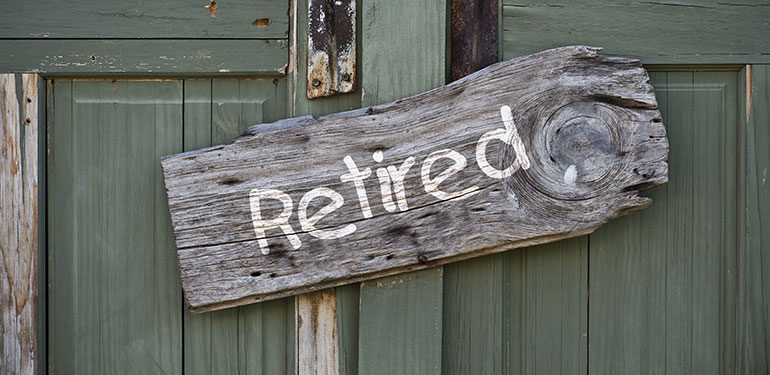When the time comes to retire, it pays to be prepared, and financially planning for your retirement is as important as it gets. And the reality is, it shouldn’t stop when you say goodbye to your day job.
There are some things you can do to ensure you’re financially prepared when you retire.
Actually sit down and make a plan
To accurately understand what it is you need to do, you need to make a plan. You need to look at your current situation, and work out where you want to be by the time you retire.
Start by comparing your assets to your debts. For example, what is the estimated value of your house compared to what you still owe on your mortgage?
With this information in hand, you should then set a goal. What amount do you think you need to live comfortably for the rest of your life? If you’re unsure, speak to the experts or do some research. Remember, the amount you’ll need will be determined by a number of factors including where you live, how much you have already, what you consider ‘comfortable’ living, and whether you have to support any dependents. Once you’ve determined the approximate number, work how much you need to contribute to your nest egg to make it happen. Then, create a budget and stick to it. This will help you keep to your goal.
Budget budget budget
Budgeting is your most effective weapon – and, fortunately, the one over which you have the most control. By budgeting prior to your retirement, you can essentially put any spare money you have into your retirement fund.
Analysing your daily expenses, as well as monthly bills and repayments, can show you exactly your money is going, and where you could potentially save some money. Remember, when you move into your retirement phase there’s going to be a much smaller amount of money coming in, if any. So any extra you have at the moment should be put away for a later day.
Look at your current investments
As the saying goes, you should never put all your eggs in one basket. All the experts will tell you, the more diverse your investment portfolio, the safer it is. Remember, if you’re only investing in real estate or stocks, you’re heavily vulnerable to market changes. If you have investments in real estate, stocks, bonds and other sectors such as telecommunications, if the market falls in one area, you still have the others to fall back on.
Do your research
No, this doesn’t mean talk to your family, friends or neighbours (unless they’re experts of course!). Doing your research means finding a financial planner or investment advisor and listening to their advice. It also means doing some reading about the markets you’re interested in investing in, and not making any rash decisions.
Find out exactly what is going on in whatever market sector you may be interested in. For example, if you’re looking at investing in up-and-coming real estate, research the developer behind it, the trade companies they are working with, the real estate agency representing the development, and so on. Don’t rely on other people to give you information unless that person is an expert in his or her field.
Don’t leave it too late
Your retirement is not something you want to be struggling with. You should start saving young, and be contributing to your savings regularly to ensure you have solid financial back-up when you need it. While it’s never too late to start planning for your retirement, you’re obviously going to be in a much better place if you’ve started early.
If you can pay off your mortgage quickly, great! Once this is cleared, other investment options are much easier to consider. You can also consider topping up your superannuation through salary sacrificing. While your employer puts in a certain amount each pay cycle, you can arrange your pay so an additional proportion of your salary is put directly into your super fund. Importantly, this sacrificed amount is not taxed.
It doesn’t stop when you retire
When you retire the planning doesn’t, and shouldn’t, stop. You should still be following a budget, and you should plan how much you can spend each month and each year, so your savings don’t dwindle too quickly. But remember, you should also be budgeting for the fun things in life, like travel.
It’s a good idea to reassess your position at the end of each financial year. Look at your savings, your investments and your spending, and see whether you have wiggle room to spend a bit more, or whether you need to reign it in a bit.
Click here to find out more about our aged care planning service that we provide or call us on (02) 8525 3700.


